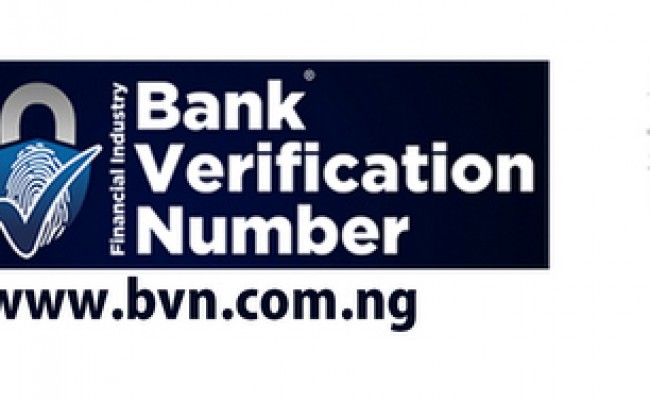The Central Bank of Nigeria (CBN) plans to extend the Bank Verification Number (BVN) registration project to customers of other Financial Institutions (OFIs), its Director, Banking and Payment Systems Department, Dipo Fatokun, has said.
The OFIs are Microfinance Banks, Primary Mortgage Institutions and others.
Mr. Fatokun made the disclosure at a bi-monthly forum organised by Finance Correspondents Association of Nigeria (FICAN) in Lagos on Sunday.
The forum had its theme as “Recent Developments in the Electronic Payments System and Implications for Consumers of Electronic Payment Services”.
Mr. Fatokun said the operators of the institutions were already working toward having their customers included in the BVN project.
He said the CBN would have OFIs customers enroll through deposit money banks because of the high cost of procuring the machines.
“We are considering using commercial banks as registration points for the OFIs customers.
“We also expect that many of the OFIs customers, who already have their BVNs, will supply the data to their banks, while those without BVN will register afresh,” he said.
Mr. Fatokun said the BVN project, being coordinated by CBN, commercial banks and Nigeria Interbank Settlement System, had helped reduce the number of bank frauds in the industry.
“Any bank customer resident in Nigeria without a BVN would be deemed to have inadequate KYC (Know Your Customer).
“Effort is ongoing to ensure that customers of Other Financial Institutions (OFIs), such as Microfinance Banks and Primary Mortgage Institutions are brought into the system begin to get their BVNs,” he said.
Mr. Fatokun said the bank planned to come up with a regular framework that would blacklist fraudulent bank customers or place them on watch-list in the banking industry.
“I want to assure you that the BVN has assisted us a lot in the banking system.
“It has assisted us to check frauds, and we are working on a framework that will enable us, if not to blacklist customers because of some legal implications, but at least to watch-list.”
Mr. Fatokun said the CBN had been at the forefront of the transformation of the payments system in the country.
He said this was demonstrated through the development of the Payments System Vision 2020 document in 2007 and reviewed in 2013.
Mr. Fatokun said the number of BVN linked to customers’ accounts by Aug. 23 was 36.7 million, while the total number of individual customers in the banks was reported as 59.9 million at the same date.
Mr. Fatokun said e-payment remained an initiative of CBN under the Payments System Vision 2020 as part of the overall 2020 Strategy.
He said one of CBN’s mandates was the promotion of a sound financial system.
Mr. Fatokun said the Nigeria Police has agreed to set up a dedicated e-Payment and Card Crime Unit to complement the efforts of Nigerian Electronic Fraud Forum on e-payment related crime.
“In following the global trend, the bank is currently reviewing the implications of cloud computing, virtual currencies like bitcoins and data protection,” he said.

 Naira3 weeks ago
Naira3 weeks ago
 News4 weeks ago
News4 weeks ago
 Naira4 weeks ago
Naira4 weeks ago
 Naira3 weeks ago
Naira3 weeks ago
 Travel3 weeks ago
Travel3 weeks ago
 Jobs3 weeks ago
Jobs3 weeks ago
 Naira3 weeks ago
Naira3 weeks ago
 Investment4 weeks ago
Investment4 weeks ago






























